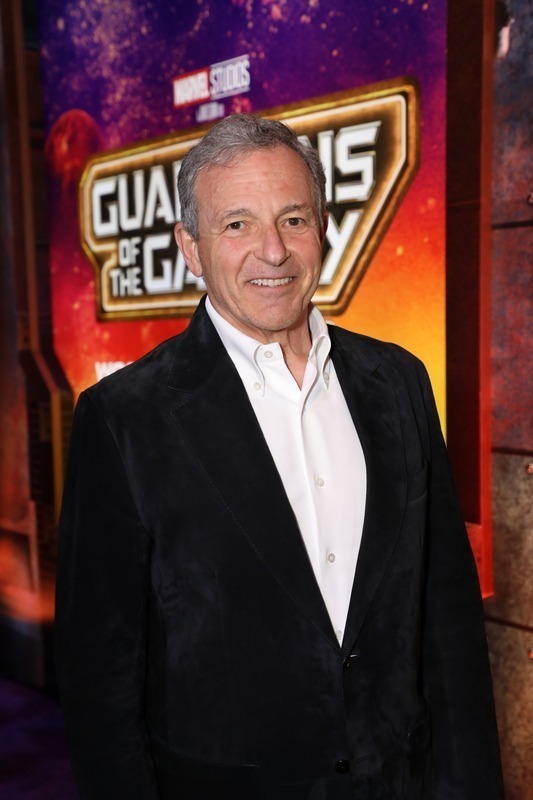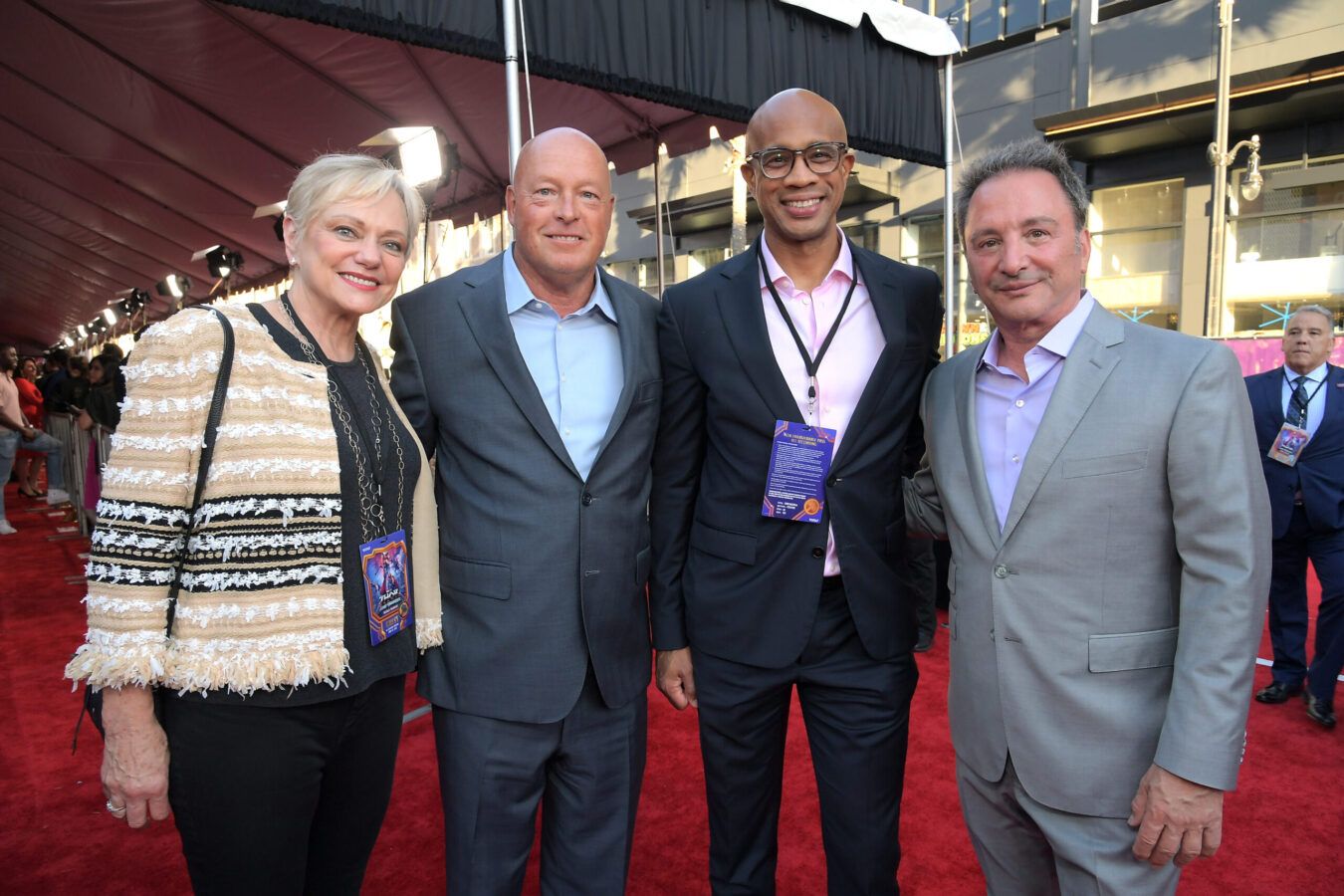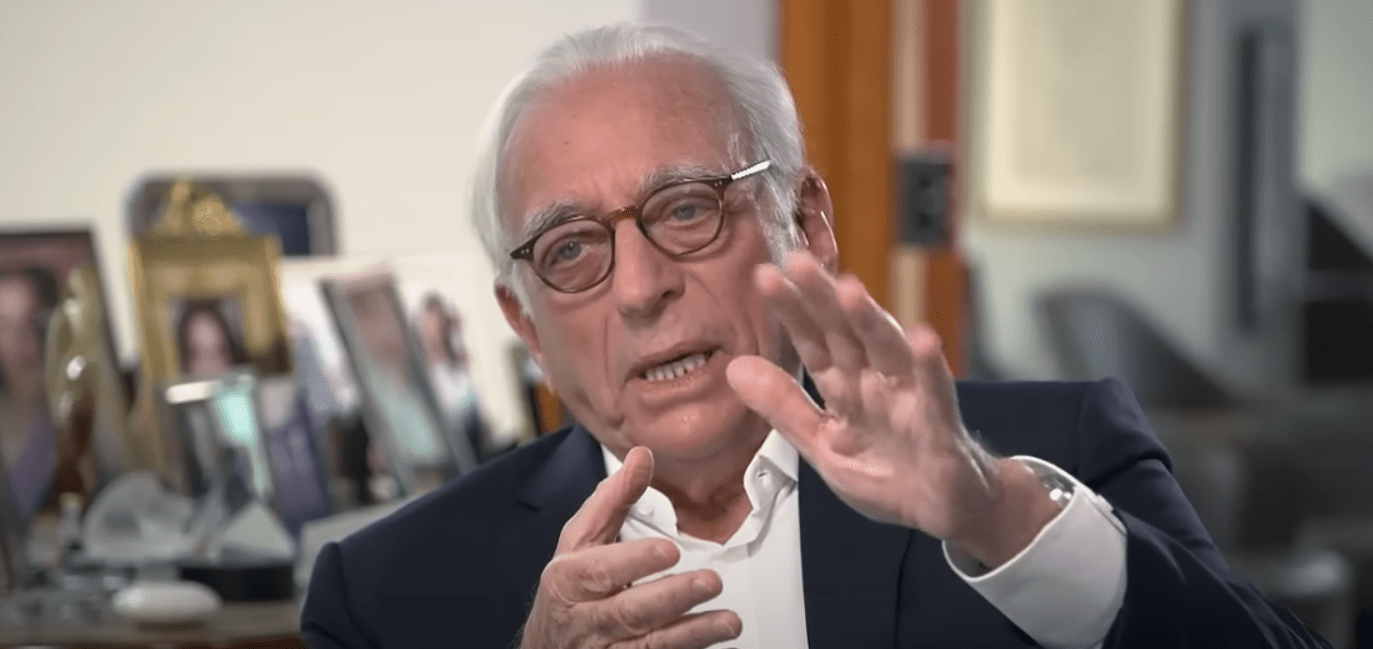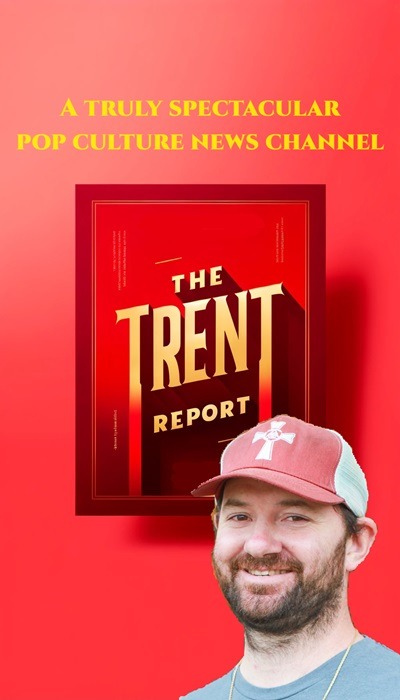You’re a real person. You have a real life and family and job that all takes up most of your time and attention (and rightly so!) But recently, the headlines and deep dives into all of the sometimes overwhelming things going on within the less-than-magical-lately Walt Disney Company kingdom must, just to avoid being endless, presume a certain level of knowledge you might not have had the time or reason to acquire before now.
Well, That Park Place is here to help with this simple, basic, non-politicized (honest!) guide to the people, the places, the organizations, and the historical minutiae that will come up again and again in our comprehensive coverage both in writing here and in our various video streams. So if anything ever seems a little bit jumbled and jivey to your “ear” as we try to keep up with what seems like several headline-making stories a day these days, just refer back to this handy guide and you’ll understand a whole lot better—we promise! We work hard to earn your trust AND promote your understanding, so let’s get to the basic bones of this amazing series of situations, shall we? (NOTE: We will update this list as needed as things progress.)

Cinderalla’s Castle in Walt Disney World via 4k WDW YouTube
1. RCID: Reedy Creek Improvement District. Most all states and even counties and cities set up special districts and tax deals to promote investment and development by giving reduced costs or better services for companies that bring jobs and goodies to their region and to compete with neighbors who do the same. These often include tax breaks, diminished “impact fees” (see below) and other perks, and they vary depending on whether the development, and thus the district, is purely residential, purely industrial, or business-oriented, or a mix of both.
HOWEVER…when the State of Florida Legislature set up the special Reedy Creek Improvement District for the Walt Disney Company in 1967 to encourage them to build their vacation kingdom in the sunshine state, they gave it powers far beyond those of ANY special district in Florida or America before or since. They created a quasi-county government that had its own police, fire, utilities, zoning rules, and other governmental enforcement authority well in excess of any heard of elsewhere—even actually permitting the creation of an airport or a nuclear power plant if RCID wanted to!
But the point is, as a GOVERNMENT they were a PUBLIC trust, dedicated to furthering the welfare of ALL the people and businesses within their borders, not just ONE company, Disney, who was the majority land-owner among a bit over 50 others. Furthermore, such districts, as governments, are bound to stay totally SEPARATE from any company in their area of jurisdiction, to not accept gifts (aka bribes) or undue influence from those private entities, and to do things, such as issuing municipal bonds (which offer investors interest that, unlike private bonds, are TAX FREE) that only governments can do.
The controversy about RCID that led to it being dissolved recently by the Florida Legislature was a problem about that separation of Mouse and State, so to speak, and how the private Disney folks had “captured” the power of the government for their own benefit and to the detriment of others both within the RCID and outside it in Orlando, Orange and Oseola Counties which the RCID territory lies within, and the entire state and, re. federal laws, the whole USA.

Mickey Mouse in The Prince and the Pauper (1990), Walt Disney Animation
2. CFTOD: Central Florida Tourism Oversight District. THIS is the NEW district created by the Florida Legislature to replace the RCID. This district was created so there wouldn’t be a vacuum of NO district and thus NO government services, but part of their mandate in taking over was to investigate and “audit” the prior entity to find out what, if anything, was done wrong so that proper authorities such as the state and federal financial and even criminal investigators could right any wrongs in that “supposed-to-be-separate-but-wasn’t” relationship between Disney and RCID.
The CFTOD Audit, conducted by a group of government, finance, and legal professionals brought in to give a clear and candid look at things, revealed many irregularities and brought lots of evidence and exhibits well over 80 pages long back to the CFTOD for forwarding to these various authorities from the local ones to the state and to those in D.C. Because the activities of RCID involved everything from police and fire to power, water, and other utilities, to traffic, building permits, and construction, taxes and bonds, to even seemingly small but equally “iffy” gifts of things like theme park passes and discounts to RCID employees, this was a very complicated investigation and it turned up a lot of very shocking things we’ve covered in various articles and videos.
There were also construction projects paid for by RCID taxes and bonds that were not for the benefit of the other resident businesses but only for Disney—for example, if you’ve ever visited the Disney Springs shopping and entertainment complex built where the old “Pleasure Island” area used to be, you most certainly parked in one of three huge citrus-named parking structures which cost some $700 million to build…not paid by Disney but by RCID, yet benefitting only Disney and their tenants. More will probably come of this as those facts are examined by the authorities and while everyone is always innocent until proven guilty in court, the “receipts” presented in documents, emails, and other data the audit collected certainly suggest that something was rotten in the state of RCID and needs addressing.

Scrooge McDuck in Mickey’s Christmas Carol (1983), Walt Disney Productions
3. “Impact Fees”: When a company or individual wants to develop either raw land or improve or expand an existing thing, clearly that creates the potential for increased traffic, utility needs, perhaps schools, parks, police and fire coverage, and all of the services a community provides to the people and businesses in their area of jurisdiction. Because of this, such improvements have “impact fees” charged to the developer as part of their cost of doing such work—a cost that, along with the wood, paint, labor, concrete, and all the other parts of development activity, adds to the total expense of such development.
Also remember that if you are in one government jurisdiction but next door to another, the traffic and other needs your project creates makes an “impact” on the neighbors as well. Among the many things discovered in the audit mentioned above was that RCID gave Disney a pass on paying, among others, the standard per-hotel-room impact fees that all the rest of the Orlando tourism areas and competing theme parks pay of well over $30k per room. Imagine a 100 room hotel, let alone owning thousands as the big players do in the Orlando area, and you can see how much money can be involved. But there’s more impact than that as you’ll see in the next item.

Walt Disney World sign via Orlando Streets YouTube
4. EPCOT—the Experimental Prototype Community Of Tomorrow: As much as early entertainers in what we now know as the theme park EPCOT used to joke saying it stood for “Every Person Comes Out Tired,” this is the REAL meaning of the name and was, in fact, Walt Disney’s vision—a real city with homes, businesses, industry, and much more than just themed attractions and hotels. He saw it as a place where new ideas and technologies could be shared with the world and proven in daily use, and based on the promise to actually build a real city, the granting of those expansive government powers to the RCID made some sense.
BUT as Walt passed away before the final creation of RCID and was not around to actually do what he dreamed, the managers of the Disney company after him decided very quickly that the problem with real cities vs. company-controlled areas was…democracy. What if the residents voted against things the company wanted to do? What if they voted IN people the Company didn’t want in charge? In short, by giving life to Walt’s vision of a REAL city government, the Disney company would give up control.
SO…they quickly decided to never actually build the original EPCOT idea or anything like it. They established a pair of towns on paper, Bay Lake and Lake Buena Vista (originally named Reedy Creek) but these consisted of only a few double-wide trailers that trusted RCID folks were put in to insure they “voted” the “right” way. In fact, when Disney built some apartments to house employees on the fringes of their acres (now 39 square MILES of land, formerly nearer to 44) they (a) built the properties under the RCID rules of less inspections and quicker building codes with no impact fees paid, but then (b) de-annexed them from the district putting the burden of serving them with police, fire, schools, etc. etc. on the neighboring communities.
That means, for one small portion of the “impact” never envisioned when the State passed the RCID legislation, that the now over 100,000 employees who work at Walt Disney World do not LIVE on the property or near it and must commute, adding all that traffic to the famous parking-lot-resembling I-4 and other local roadways in Orlando, so you can see how this affects those outside the District itself.
Furthermore, cities and counties compete for federal grants for things like utilities, sewage treatment, wetlands preservation and a host of other things the federal government wants to encourage and help pay for. In the past RCID has won some that they competed with Orlando and other Florida entities for, which means those entities lost. If this was a fair competition between governnments, so be it, but when it turns out the benefits only go to one PRIVATE company because of RCID’s preference, that’s another story and part of why the Federal folks are getting involved, too. So there has never been a genuine “community” in the past, the present or “tomorrow” at EPCOT/RCID, and the failure to keep that promise by Disney is part of why RCID was dissolved in favor of CFTOD.

The Wonderful Summer of Mickey Mouse” finds Mickey Mouse and his friends each recalling the wild events leading up to the Annual Summer Fireworks Spectacular from their point-of-view. Coming to Disney+ July 8
5. SEC and MSRB: The Securities and Exchange Commission and the Municipal Securities Rulemaking Board are two Federal agencies of the U.S. Government that regulate the creation and sale of municipal bonds and securities. Companies which are “public” (i.e. that sell shares of ownership to people and companies outside of their own managers) and traded on the various stock exchanges such as the New York Stock Exchange do so under rules set up by these agencies to make sure they deal fairly and give proper and full information to potential and actual investors. This includes mandating quarterly and annual reports, holding fair elections for company board members who then choose officers such as the Chief Executive Officer (CEO,) Chief Financial Officer (CFO,) and others and the board is supposed to represent the investors and look out for their interests under the rules the SEC sets down to make the marketplace free of corruption.
The MSRB specifically designates how and under what conditions municipal bonds are issued and sold by governments and special districts, again to make sure buyers are treated fairly. Both of these agencies are currently or will soon be exploring the facts regarding how and when and with what honesty and completeness both Disney and the RCID kept people informed. IF the audit’s findings are any indication, both failed that test of accuracy and honesty and potentially are subject to punishments and fines for those failures.

Kaitlin P. and Sorcerer Mickey via Disney Parks YouTube
6. Robert “Bob” Iger: The “once and future” CEO of the Walt Disney Company began his career as a weatherman for ABC and moved up through executive ranks as ABC was incorporated into the Capital Cities company of media holdings which eventually was bought by the Walt Disney Company and thus Iger moved up to CEO of Disney. (It is interesting to note that when Walt Disney was trying to build the original Disneyland in California he actually got then separate ABC to invest the money needed in return for doing the “Mickey Mouse Club” and “Disneyland”—later “Wonderful World of Color” and then of Disney– shows for their then-distant-third-place TV network and now, full circle, they are all one company.)
Iger’s tenure as CEO from 2005 and Chairman in 2012 through 2020 saw vast expansion of Disney as his fame as a “deal-maker” saw him acquire the Lucasfilm, Pixar, and Marvel Entertainment empires and add them as Disney brands. He formally stepped down in 2020 in favor of his hand-picked replacement Bob Chapek (see below) but ousted him and returned to run the company again in 2022.
Iger never really departed fully as he was on a “consultant” contract and even famously refused to leave his special office at Disney HQ in Burbank, California which is noted for having a special shower some joke about. Recent press coverage suggests that he actively undermined Chapek to engineer his own return, and the failure of his many acquisitions, which later included the Fox movie and TV properties, to make profitable and popular entertainment has been blamed by some on his personal political stances on various issues included but not limited to personal behavior.
The Disney reputation, once the highest in the world for creating wholesome family entertainment, has changed during his tenure and under his leadership and many suggest that isn’t for the better. He maintains it is part of the company’s “corporate responsibility” to be good “global citizens” that such political expressions in their products and services be made. While there can be opinions on both sides of those issues, there is no doubt that audience acceptance of such moves under Iger, as even they admit in their most recent SEC reports, are a big risk financially if audiences disapprove and reject their products as a result.

Bob Iger attend the Guardians of the Galaxy Vol. 3 Premiere at the Dolby Theatre in Hollywood CA on Thursday, April 27, 2023.
(Photo: Alex J. Berliner/ABImages)
7. Robert “Bob” Chapek: He ran Disney’s parks and experiences division when he was chosen by Iger as explained above to take over the top slot at the company. His tenure was marked with (a) much higher stock prices—indeed the highest ever in the company’s history and (b) the impositions of economies in spending and attempts to limit the political expressions put in by Iger, but also by (c) what some would describe as a less-smooth, more heavy-handed expression style that gave the company PR problems.
Iger wanted to push his agenda and pressured Chapek, who originally opposed this, into formally putting the company on the record as visibly and loudly opposing a law in Florida that prohibited the teaching or discussion of sexual behaviors and alternative lifestyles by teachers in public schools for very young children. The controversy that erupted over this led to exposure of programs within Disney that were put in by Iger to put more messaging on these topics into their formerly “family friendly” movies and shows, and their brand suffered the “risks” mentioned above because of it.
Chapek was unceremoniously fired and now has been blamed by Iger for just about everything wrong with Disney as Iger claims he has spent his time since coming “back” (he was never “away” as we’ve seen) working on “fixing” problems he says Chapek created. In fact, the very first movie Chapek actually gave the “green light” on won’t come to the screen until the middle of 2024 and thus all of the famous boxoffice and streaming failures were projects guided by Iger and his acolytes in the company.
Meanwhile, Chapek is under a “Non-Disclosure Agreement” aka an “NDA” and cannot respond to these attacks on him by Iger. It is worth noting, however that NDA’s do NOT compel silence in potential criminal law cases that might come from the aforementioned audit’s revelations, so we probably have not heard the last of Chapek yet.

LOS ANGELES, CALIFORNIA – JUNE 23: (L-R) Christine McCarthy, CFO of The Walt Disney Company, Bob Chapek, Chief Executive Officer of Disney, Kareem Daniel, Chairman of Disney Media and Entertainment Distribution and Louis D’Esposito attend the Thor: Love and Thunder World Premiere at the El Capitan Theatre in [Hollywood], California on June 23, 2022. (Photo by Charley Gallay/Getty Images for Disney)
8. Nelson Peltz: Mr. Peltz is a famous “activist investor” who has made a net worth for himself of 2.7 billion dollars and millions more for the investors in his “Trian Group” company by buying into, taking control of, and often then selling at a profit many companies because he felt their former managers were not doing the right thing to improve their value and thus the value of their stock. He has had holdings in companies such as Heinz, Cadbury, Kraft, Mondelez, DuPont, Pepsi, Proctor & Gamble, Family Dollar, State Street, Wendy’s, and more though he began life as a delivery truck driver for his family’s small business.
During Iger’s prior run as CEO of Disney Peltz became interested in the company and pushed for power on the board due to his large stock holding but backed off when Iger made promises of reforms. Now he has returned with a more direct “proxy fight” (a proxy is the voting power of a shareholder and when groups like Peltz’s “Trian” get other stockholders to sign their voting rights to him, they wind up with the power to elect new managers/board members at annual meetings far beyond their own stock alone) and announced his intentions of putting a chosen representative on the current all-Iger-picked Disney board to bring the views of investors to the management of the company which he says has not listened to them.
Peltz’s way of gaining support has been to issue a “white paper” report of what he sees as the current management’s mistakes and people are expecting such a report to happen sometime between this writing (early December 2023) and the next Disney annual meeting in 2024.

Nelson Peltz via David Rubenstein YouTube
9. Ike Permutter: Mr. Perlmutter came to the US with $250 in his pocket as an immigrant in 1967 and sold toys on the streets of Brooklyn, NY where he discovered Marvel comic books and their characters. He managed to acquire the company in its bankruptcy in 1998, built it into a huge and highly successful comic and movie company by using strategic partnerships with various movie production companies and eventually created the successful “MCU” or “Marvel Creative Universe” motion pictures starting with the first Iron Man starring Robert Downey Jr. in 2008.
He sold the Marvel company for $4 billion in cash and stock to Disney and Iger in 2009 but still served as Chairman of the Marvel division until Iger fired him in March of 2023 after a contentious relationship. He has now added his own remaining stock voting power in Disney to Peltz’s and joined Peltz’s quest to bring new board members to the Disney company.

Robert Downey Jr. as Iron Man (2008), Marvel Entertainment
Well, that’s enough to get you started and to bring you up to date so that when, in the course of things with our various articles and videos, you hear about these companies, personalities, and agencies, you’ll have a kind of ballpark program to refer to and better understand. We will, as stated, update this in future if and when other items are needed. Hope this helps, and thanks for your continued support—and giving our videos “likes” and “subscribes” helps us with the YouTube algo’s and spreads our visibility too, so please feel free to share this and all our content with your social media community–thanks!
(P.S. IF you are a journalist who has just been given this “beat” and are not familiar with it and would like to credit us we’d be happy to help you do so and provide more details you might need. Just get in touch, and subscribe to our YouTube channels for all the latest news, too!)








